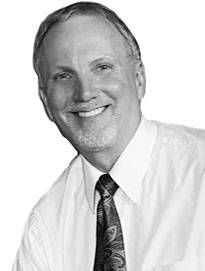“In this era of post-truth politics, it’s easy to cherry-pick data and come to whatever conclusion you desire” (Oxford Dictionaries.com).
What is post-truth? According to the same source, the definition is: “Relating to or denoting circumstances in which objective facts are less influential in shaping public opinion than appeals to emotion and personal belief.” This approach to truth can be found on both the right and the left of the political spectrum.
Recently, I read the introduction to an article in Time, a strongly left-leaning news magazine. The author was critiquing a source of information and denigrating its veracity because it was viewed as a “hate group” by the Southern Poverty Law Center. That whole approach seems wrong because, even if it is a “hate group,” it doesn’t mean its information is wrong. Also, just because the SPLC viewed it as a “hate group,” it does not make it so, since that organization also has its own biases that color its perspectives.
On the right, one Donald Trump supporter pointed out all the things the president had accomplished since taking office. My response was yes, he had accomplished several things, but the ends did not justify the means he used to get there. Lying and bullying should not be the way the president of the United States acts to accomplish his goals. Integrity and being a proper role model matter, too. A president sets a tone that is imitated by others nationally and worldwide. Short-term thinking does not equal long-term results.
William F. Davies, a writer for the New York Times in an Aug. 24, 2016, article titled, “The Age of Post-Truth Politics,” noted that, “Rather than sit coolly outside the fray of political argument, facts are now one of the main rhetorical weapons within it.” The problem is that the number of experts has multiplied and are available for hire. You want to prove a point? If you have enough money and political power, you can probably find an expert to endorse your position.
According to Davies, we are living in the age of too much data. “There are too many sources, too many methods, with varying degrees of credibility, depending on who funded a given study and how the eye-catching number was selected.”
Davies goes on to give a brief history of facts, going back to the Middle Ages and the birth of accounting. That kind of truth could stand alone. Then came statistics, economics, surveys and other numerical methods that were supported by standards-regulated organizations that upheld high expectations for truth.
In the 20th century came private market-research companies who used research to argue differing views, using “evidence-based” research. By the late 1990s and early 2000s, there was a transformation from the emphasis on facts to an emphasis on data. With the coming of “smart” phones and other electronic data gathering devices, the amount of information available has exploded exponentially. People’s opinions are now being gathered and organized.
These “sentiment-analyses” now impact the decisions of our leaders. They know what the public mood is at a given time – how popular or unpopular they are. They act accordingly.
We now live in an age of data without facts. Davies uses the example of weather forecasts. The weather temperature is supposed to be 75 degrees this Thursday, but that information changes constantly with new information from a multitude of sensory devices. This is how “sentiment-analysis” works.
When we use this approach in politics, it is difficult to come to agreement about what truth is, let alone come up with solutions to economic and social problems. It’s difficult to get people to agree or to change their views. Sentiment-analysis also gives rise to conspiracy theories.
Due to the enormous volume of data at our fingertips, we are now living in the age of post-truth. Emotions and opinions take on more importance than facts. Since separating fact from opinion requires higher-level thinking skills which a large percentage of the population lacks, we are now a deeply polarized nation that vehemently debates what the truth really is. As Rudy Giuliani recently stated, “Truth is not truth.”
Richard Elfers is an adjunct professor at Green River College and a columnist for Reporter newspapers. Reach him at editor@courierherald.com.


